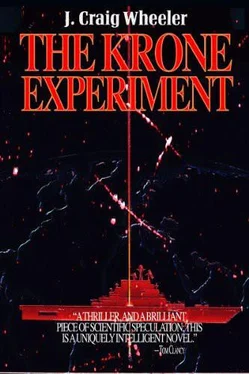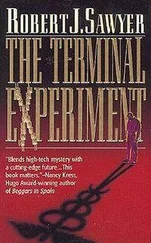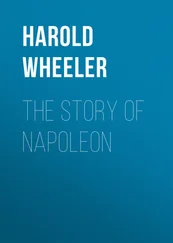“Wrong, of course,” smiled the young woman. She turned serious. “But you’ve hit on an important point. The first algorithms used in the signal analysis were based on the assumption of a static source, that the signal was coming from a single location. That assumption proved to be self-inconsistent and we abandoned it. When we allowed for the possibility that the source moved, things began to fall in place.
“I won’t show you all the data, but look at these two clear stretches when the background noise was low.” Danielson unrolled a strip chart on Isaacs’s desk. “See here, the signal comes from the vicinity of Egypt. Here, this is a week later, it comes from the mid-Pacific basin. That proves it moves. A more careful analysis hints, but doesn’t yet prove, that the period is not due to a change in power at the source, but is due to a source of roughly constant power moving from one side of the Earth to the other.”
“A reflected wave of some kind,” put in Isaacs.
“Perhaps,” replied Danielson, “but not like any the seismologists have ever seen before. Any strong Earthquake will set up reverberations that travel diagonally through the Earth, but those die out quickly. Something continues to drive this wave — that’s the mystery.”
“So the actual energizing source might still be located in one place and the apparent movement is just due to the random bouncing of the subsequent wave.”
“Possible,” allowed Danielson, “and more comfortable, but the data still seem to suggest that the source is moving.”
“How much energy is involved?” queried Isaacs.
“Well, of course, the power we detect depends on both the power at the source and the distance to our detectors. If we assume the source is, on the average, at the distance of one Earth radius, about four thousand miles, then the seismic energy flux at the detector corresponds to a source power of about one thousand megawatts — big for a power station, but pretty small potatoes compared with all the seismic energy in the Earth at a given time. Which is why the signal is hard to detect and analyze.
“Since we don’t really know the nature of the source, it’s difficult to associate an energy with it; that is, it could sit in one place and emit bursts of energy that reverberate, or it could represent a continuous supply of energy, as we believe. A ballpark estimate is the total energy liberated in one characteristic period, ninety minutes. In one period that would be about one per cent of the energy of a one kiloton nuclear event.”
“That’s a maximum estimate, isn’t it?” asked Isaacs.
“Yes, sir,” replied Danielson, “within a factor of a few, given that the source is confined to the Earth.”
“One hundredth of a kiloton,” mused Isaacs. “That’s too small to be a nuclear device, and if the source is closer, the energy estimate only goes down. Still, if that amount of energy is being liberated artificially on the surface, we should be able to see other signs of it in the optical or infrared — somewhere.
“The most reasonable assumption,” Isaacs continued, “is that this is some natural seismic event that happens to have a period of about an hour and a half, regular fault slippage of some kind.”
Danielson raised a finger and opened her mouth to interject, but Isaacs interrupted her, “Unless, of course, you can prove the source is actually moving about.
“Obviously, I’m unconvinced this signal is anything but some sort of natural phenomenon,” Isaacs said, “but I am convinced we need to nail it down. Suppose you’re right and it’s not related to natural fault slippage somewhere, do you have any guess as to what it might be?”
“No. If the source is moving around in the Earth as I think the data suggest, it’s a total paradox. Fault slippage at different points on the Earth shouldn’t be correlated.”
Isaacs leaned back in his chair, toying with a pencil. “A period of ninety minutes still sounds suspiciously like some artificial phenomenon — keyed to somebody’s time clock. If your positions are right, Egypt and whatnot, it’s not a local man-made thing, but I’d like to make sure that is ironclad.”
Isaacs sat up at the desk and gestured to Danielson with the pencil. “You had better make this a matter of some priority until it’s resolved. We need to know the period, if it really is one, more accurately. If the period is not precisely defined, that’s good evidence of a natural phenomenon. If the period turns out to be exactly ninety minutes, it will be a man-made event despite present evidence to the contrary.
“We need to know the location, whether or not it is moving around. When you have a location, we can look for some other evidence of its existence and nature. If it’s seismic in nature, there should be some correlation with fault location and activity. Any other suggestions?”
Danielson paused a moment in concentration before she spoke. “No sense speculating without more data. It will probably be useful to get records from civilian seismic stations, universities here and abroad. We can look for correlations among events that would pass unnoticed in any single record. That should help with both the period and the location.”
“That’s fine,” said Isaacs with a note of finality. “Let me know how this develops.”
“Right,” said Danielson, rising to leave, collecting the bundle from his desk. “We’ll continue to monitor our own AFTAC data, and that may begin to pin things down. But it will take a month or so to acquire and analyze the civilian records.”
“Okay, keep in touch.”
“Yes, sir.”
Isaacs watched the door close behind her. He stared at it, unseeing, as her problem diffused from his mind and his consciousness flowed out along tangled diplomatic channels. From his office to Drefke’s to the White House. To Moscow. Academician Korolev. Why did he rule out the meteorite? What had happened to the Novorossiisk? What would happen to the shuttle?
Major Edward Jupp went through the countdown procedure the way he had a hundred times in simulation and twice for real. His gloved hands played over the switches, and he responded to the voice of the mission control agent at the Consolidated Space Operations Center in Colorado Springs. His mind was on the gaunt, taciturn passenger in the rear seat. This was his first mission as commander, and he ached for a perfect flight. So what did they do but pull the mission scientists, and substitute this bozo, Colonel Newman, putting him in charge of a half-baked kamikaze mission to snatch a live Russian laser satellite. On the other hand, thought Jupp, they’re giving me a chance to fly this sweet baby, new engines, high orbit capability; we’ll see what she can really do.
He watched from the corner of his helmet visor as the boom swung away from the top of the liquid fuel tank. He could sense the billion cracklings as the liquid oxygen sucked heat from the mighty vessel, and he lightly fantasized again that he could smell its cool freshness. The hum of a thousand organs, electrical, mechanical, fluid, and solid sang their readiness to him. He listened to the countdown and felt the Pavlovian rush of adrenalin as the count reached “one.” With “zero” the beast screamed its energy, first with the roar of the gigantic liquid fueled engines and immediately the answering call of the solid boosters, a triumphant Tarzan cry, hailing the defeat of gravity. And then, just as before, the miracle was repeated and they were on their way, lifting, twisting away from the gantry, the thrill of unbridled acceleration coursing through his body.
They kept to established routine for the first several orbits. The idea was not to tip their hand too early. Jupp knew, though, that the Russians would be watching them microscopically, anticipating precisely the move they now planned. The quiet passenger remained in his seat, not so much withdrawn as apparently oblivious to the activity necessary to establish a shuttle orbit. If he noticed that he was suspended head down two hundred miles above Earth, he did not show it.
Читать дальше











